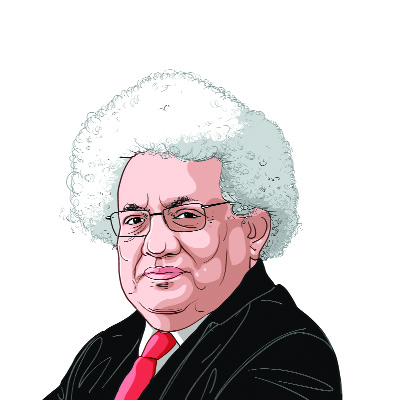Opinion Endgame for Anna?
Ever since last April,India has had the unique experience of Parliament facing a strong team from civil society which has focussed sharply on the issue of corruption
Ever since last April,India has had the unique experience of Parliament facing a strong team from civil society which has focussed sharply on the issue of corruption. Unlike other protests which are caste or religion or region based and which the political system is clever at defusing,this protest was across India and the protesters had no immediate bribe to demand which would send them away.
The Anna Hazare movement not only protested against corruption,it also proposed a piece of legislationthe Lokpal Bill which has been around since the late Sixties. Again and again,it did not pass because of lack of parliamentary time. This time,the Parliament had nearly three years to run when the movement began,so that is no excuse. What followed was an exemplary extension of democracy where the civil society took active part in debating drafts of legislation which normally is the monopoly of Parliament to pass.
There is much about Anna Hazare himself which many do not like. I myself mistrust all saints and people of virtue since they are the most likely to be authoritarian and intolerant. His eagerness to fast is also getting tiresome; a weapon often used loses its effectiveness. But let that be.
But now,we have arrived at the end of the process. The Jan Lokpal Bill has been discussed along with the official draft; a Standing Committee has looked at it; there have been All-Party deliberations plus a lot of back door meetings; several drafts have been circulated and now the final draft has been presented.
The citizenry accepts that Parliament has legitimacy as it is elected by them,but it also does not trust the political system in general,and the executive in particular,to fight corruption on a neutral and honest basis. Congress,which has ruled the nation for all but a dozen of the sixty-four years,must bear the major responsibility for this. But every party,whenever in power at the Centre or in the States,has indulged in partisan attacks on their opponents corruption while shielding its own followers. Congress in reply to accusations of corruption,typically replies that the BJP is corrupt too.
Thus the issue is Can the Parliament,which is the core of the political system legitimised by elections,be trusted to purge corruption of its own free will? The citizens answer is No. This is why the Anna Hazare movement has struck a chord with a lot of people who normally leave the matter of legislation to politicians. The Indian Parliament has its own procedures,which of course it must adhere to. But it is under scrutiny as to whether it really represents the people or has become a vested interest in its own right. After all,the MPs in India are perhaps the most privileged of any country in terms of salaries and emoluments and entitlements. The value of all the perks that a MP gets in proportion to per capita income,to say nothing about the aam admi on Rs 32 per day,is the highest of any country in the world. MPs spend a fortune,mostly in black money,to get elected and so have an abiding interest in not fighting corruption.
This is thus the acid test. Of course,the Lokpal and the CBI must be free of executive controlthe CBI especially since its misuse has been central to the scandals of the last two years. Yet,the Lokpal cannot be the sole over-arching authority that Team Anna wants since it is treacherous to trust any single institution with so much power. But both the Lokpal and the CBI must be made accountable to Parliament,not the executive. This is a normal practice in democracies and India can introduce a Joint Standing Committee of both houses of Parliament to oversee the Lokpal and the CBI.
The question is: will the government allow its own version of the Bill to pass or will it foment rebellion from the usual suspects to scuttle the Lokpal Bill once more due to lack of time? Will it divide to rule or will it unite the Parliament to answer a major lacuna in the body politic?


